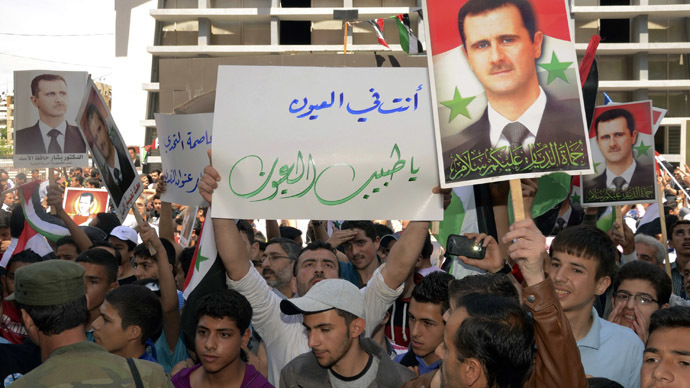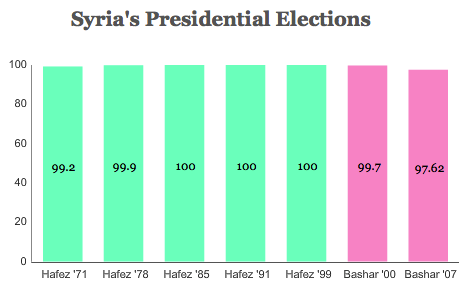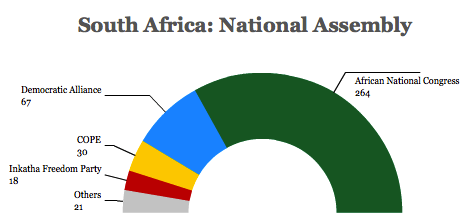
If you can believe it, today marks the one-month anniversary since the first polls opened in India’s gargantuan nine-phase general elections. 
Today, with 439 members of the Lok Sabha (लोक सभा) already elected, India is now just two election days away from completing the voting process. Results will be announced on May 16 — just nine days from today.
The eighth phase adds 64 more seats to the total.
Uttar Pradesh
Fifteen seats will be selected in Uttar Pradesh, India’s most populous state and the biggest prize of the election, with 80 seats.
The most watched contest is in Amethi, something of a Nehru-Gandhi family heirloom:
- It was first won by Sanjay Gandhi, the son of longtime prime minister Indira Gandhi in 1980.
- When Sanjay died in an airplane crash, his brother Rajiv Gandhi held the seat from 1981 (including as India’s prime minister between 1984 and 1989), until his assassination in 1991.
- Rajiv’s Italian-born widow Sonia Gandhi held the seat from 1999 to 2004, though she is running today in the adjacent Rae Bareli constituency.
- Rahul Gandhi, the son of Rajiv and Sonia Gandhi, has held it for the past decade, and he’s leading the campaign of the governing Indian National Congress (Congress, भारतीय राष्ट्रीय कांग्रेस) in 2014 — with prime minister Manmohan Singh stepping down, Rahul Gandhi would likely become prime minister if his party defies polling predictions and wins the elections.
- Rahul’s sister, Priyanka Vadra (pictured above with Rahul), is running the Congress campaign behind the scenes — though with an increasingly public role.
Though Rahul Gandhi’s official opponent is Smriti Irani, a former television star, he’s really running against Narendra Modi, the prime ministerial candidate of the Bharatiya Janata Party (the BJP, भारतीय जनता पार्टी), who took the fight earlier this week to Amethi, a sign of confidence in the ‘Modi wave’ that the BJP and many national polls say is sweeping India after a decade of Congress-led rule (though polls have been wrong before, in 2004 and even in 2009).
Modi on Monday delivered a scathing attack on the entire Nehru-Gandhi family, calling it arrogant and angry — it’s the Indian political equivalent of spiking the ball as Modi appears on the verge of winning a landslide BJP victory:
There is no doubting Modi’s intention, which was to offer the spectacle of his presumption; the presumption of a “chai bechne wala” humiliating the “raj parivar” in their own backyard. The class warfare trope, beloved of old socialist-era Hindi films, played beautifully to his exceptionally large gallery. They cheered each time Modi pronounced ‘Sssonia madam’ with his now trademark sibilant hiss…. The truth is that Modi didn’t really need to go there. Yet he did because, simply, he could — hold a giant rally in Amethi and heap personal invective on the Gandhi family.
Modi attacked Priyanka Vadra for her ‘arrogance’ in dismissing the local BJP candidate and baiting her into an angry response by attacking her father. Modi, who is considered ‘OBC’ (Other Backward Classes), a constitutionally protected class, and who once sold tea for a living, played both the class card and the caste card against the Gandhis.
Vadra accused Modi of practicing ‘neech rajniti‘ — or low-level politics — and Modi slammed back that it’s not a fault that he was born into a ‘neech jaati‘ — or lower caste. In states like Uttar Pradesh and Bihar, where caste and politics are unmistakably linked, Modi has been careful to shy away from caste-based campaigning, though top Modi aide Amit Shah has been working for months behind the scenes to manage a savvy BJP campaign designed, in part, to maximize the caste divisions among rival parties.
Hindu poet Kumar Vishwas is running as the candidate of the newly formed good-government, anti-corruption Aam Aadmi Party (AAP, आम आदमी की पार्टी, Common Man Party), which rose to prominence in the December 2013 Delhi elections and briefly held power for 49 days until AAP leader and Delhi chief minister Arvind Kejriwal resigned when the legislative assembly blocked his keystone corruption bill.
Andhra Pradesh
The remaining 25 seats in the southern state of Andhra Pradesh are up for grabs, too. Continue reading India Lok Sabha elections: Phase 8 →
![]()




